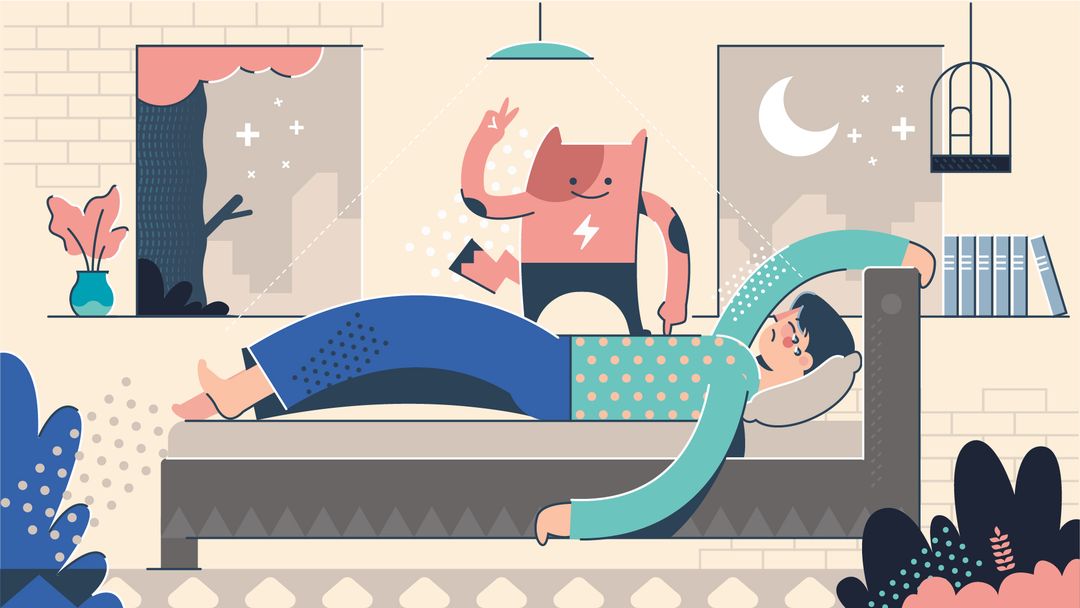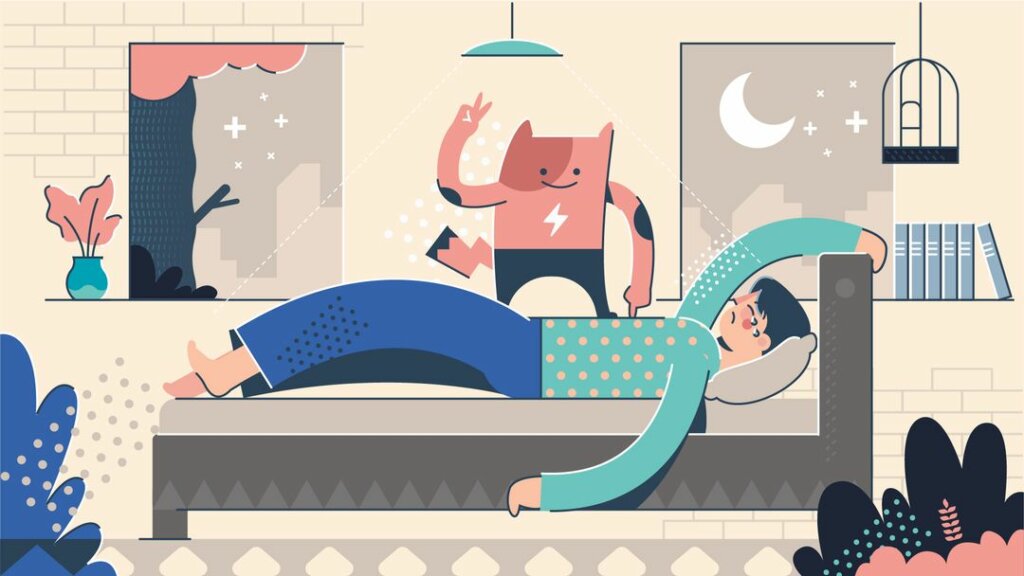Have you ever had a strange dream where you felt awake and completely aware of your surroundings, but where you were somehow physically unable to move? While this type of experience is often shrugged off as “just a nightmare,” if this regularly happens to you, just as you’re falling asleep or waking up, these occurrences may be indicative of a sleep disorder called sleep paralysis.
Sleep paralysis happens when your body has gone on “relaxation or sleep mode,” but your mind is still awake. Most people only experience it for a couple of seconds, once or twice in their lives, but the episodes can be persistent—especially for those with underlying mental health conditions.
Can’t sleep and don’t know why? Check out our Complete Guide to Sleep Disorders with symptoms, causes, and treatments on over twenty types of sleep disorders.
Quick Facts – Sleep Paralysis
Frequency: 7.6% of the global population* has experienced this, with up to 34.6% of psychiatric patients diagnosed with panic disorder reporting it as a lifetime condition
Risk Factors: Sleep deprivation, alcohol use, pre-existing sleep disorders (e.g. sleep apnea, narcolepsy), mood-related disorders (Post-traumatic stress disorder or PTSD, panic disorder, depression, anxiety), genetics or family history, being a teenager or young adult
Nature: Mental
Treatment: Cognitive behavioral therapy (CBT), medication, adjustments in lifestyle and sleeping habits or patterns, psychotherapy
Symptoms – Sleep Paralysis
Sleep paralysis can occur either when you’re waking up or when you’re about to fall asleep. Aside from not being able to move or speak, in some cases, sleep paralysis can also be accompanied by hallucinations—which then lead to feelings of fear and worry about falling asleep. Below are other things one can experience during sleep paralysis.
- A sensation of something pressing down on your chest
- Inability to move or speak as you’re about to wake up or fall asleep
- Feelings of fear and panic
- Hyperventilation and/or hallucinations
- Imagined sounds or voices
Causes – Sleep Paralysis
The exact cause of sleep paralysis hasn’t been conclusively established yet, though studies have linked this disorder to several factors, including genetics or family history. Below are other factors and conditions that may contribute to sleep paralysis.
- Irregular sleep pattern or schedule (e.g. rotating work shifts, jet lag)
- Nicotine withdrawal
- Sleep deprivation
- Chronic pain – This includes other physical conditions that can disrupt sleep.
- Severe stress and traumatic life events – Those with PTSD and panic or anxiety disorders are more likely to have sleep paralysis.
- Sleep-related disorders – Sleep paralysis is most common among people with narcolepsy and other sleep disorders that involve awakenings in the middle of the night.
Treatment – Sleep Paralysis
There is no formal or official medical treatment for paralysis. Depending on the circumstances (i.e. if the disorder is caused by an underlying physical or mental condition), treatment options can range from improving sleep hygiene (avoid sleeping on your back, stick to a regular sleep schedule, etc.) to psychotherapy and prescription medication.
- Cognitive behavioral therapy (CBT) – This addresses any underlying conditions that may be causing sleep paralysis, and can also help improve lifestyle and sleeping habits.
- Medication – According to the research, the PTSD prescription drug prazosin, for example, can help with nightmares that could lead to sleep paralysis.
- Maintaining a regular sleep schedule
- Psychotherapy – This is especially useful for those who are also diagnosed with panic and anxiety disorders, and those who have recently gone through traumatic life changes and/or events.
How You Will Overcome It Sleep Paralysis
The good news is that for most people, simply improving your sleeping patterns, habits, and schedule is enough to ward off future episodes of sleep paralysis. It’s very rare for a typical healthy person to have consistent nights of sleep paralysis, unless they are also dealing with narcolepsy, PTSD, and other underlying psychiatric conditions.
If you fall under the latter category, you also have several treatment options available to you (including CBT, medication, and psychotherapy) that have been found effective in treating sleep paralysis.
Sleep paralysis usually only lasts for a couple of seconds, but a couple of seconds of immensely horrific, anxiety-inducing displeasure isn’t something you want to deal with on a regular basis. If you get episodes so frequently to the point of severe sleep deprivation, it might be time to get help. Consult your GP and get the best treatment option for your sleep paralysis—but not before you’ve checked for any monsters lurking underneath your bed.
Did you know?
This article is part of our Complete Guide to Sleep Disorders – A resource that will help you get your quality sleep back. Click here to learn more about sleep disorders, their causes, symptoms and how to overcome them.



